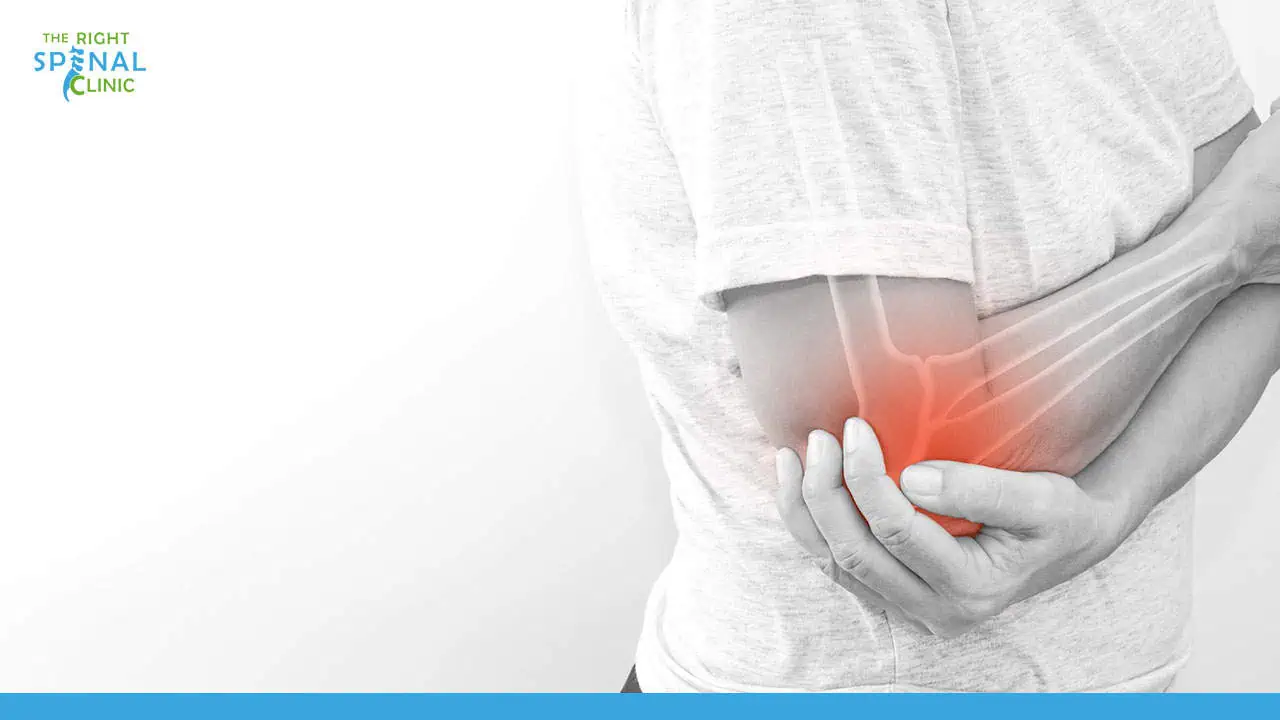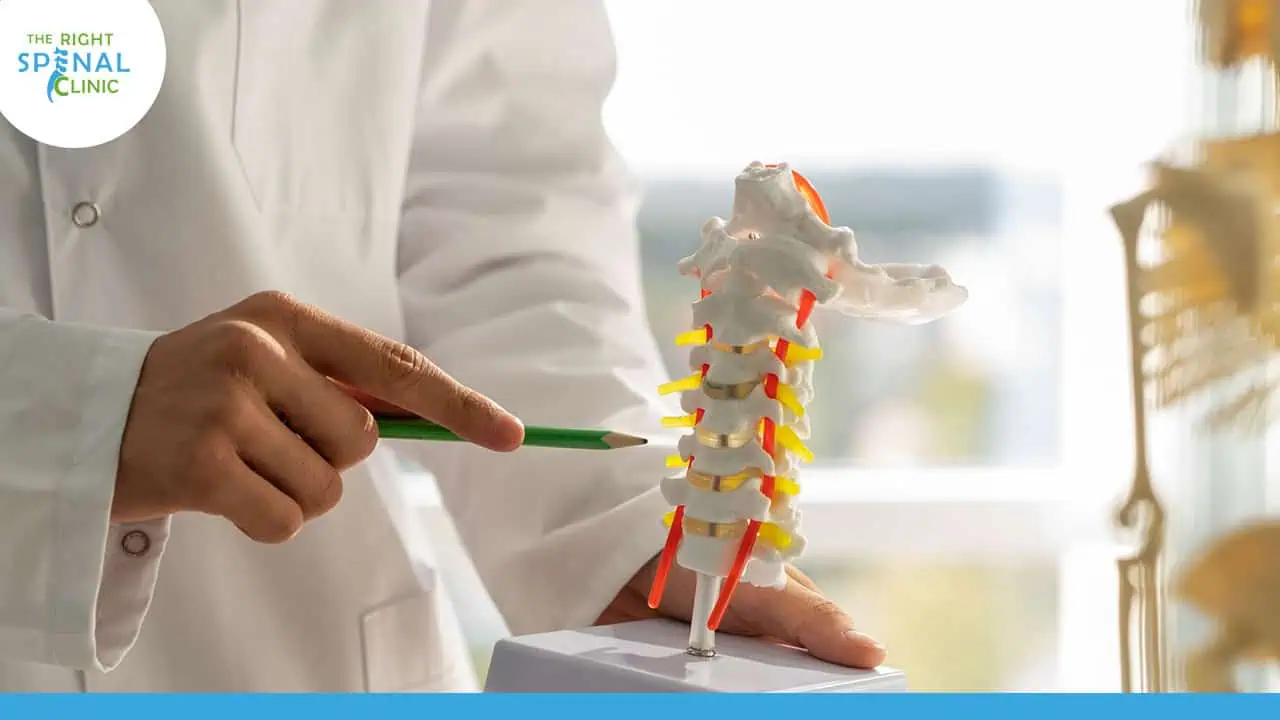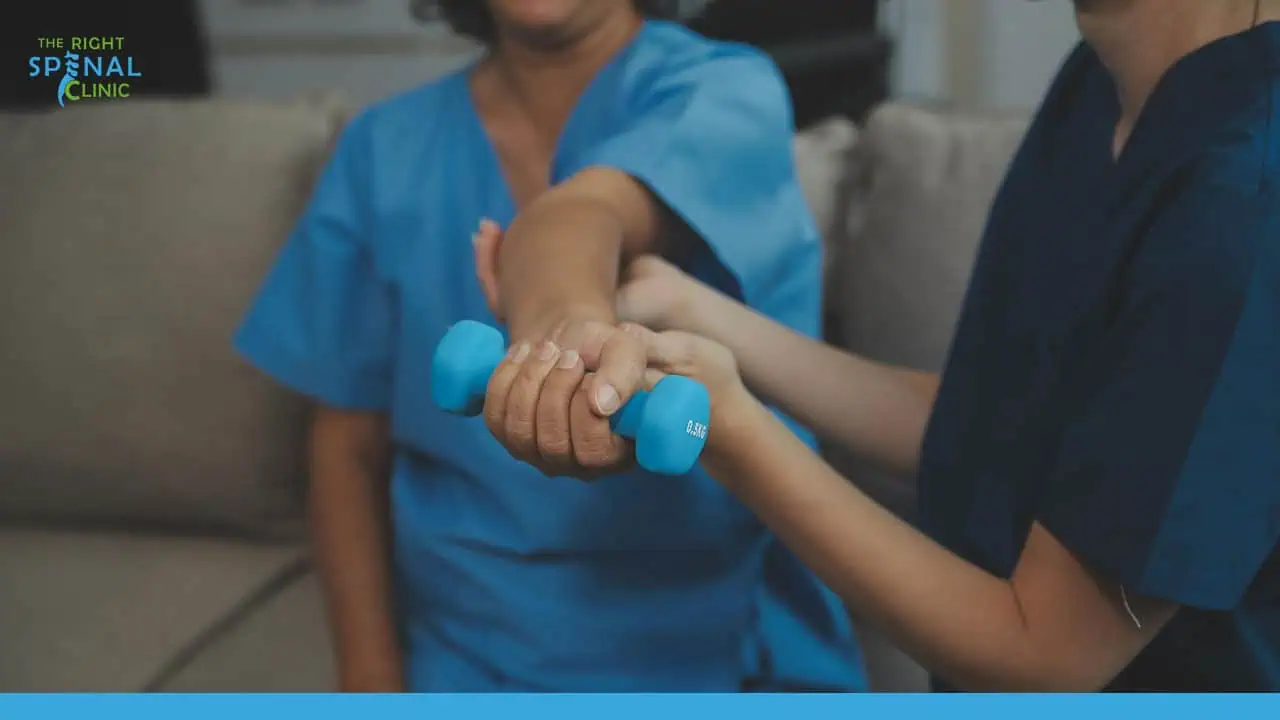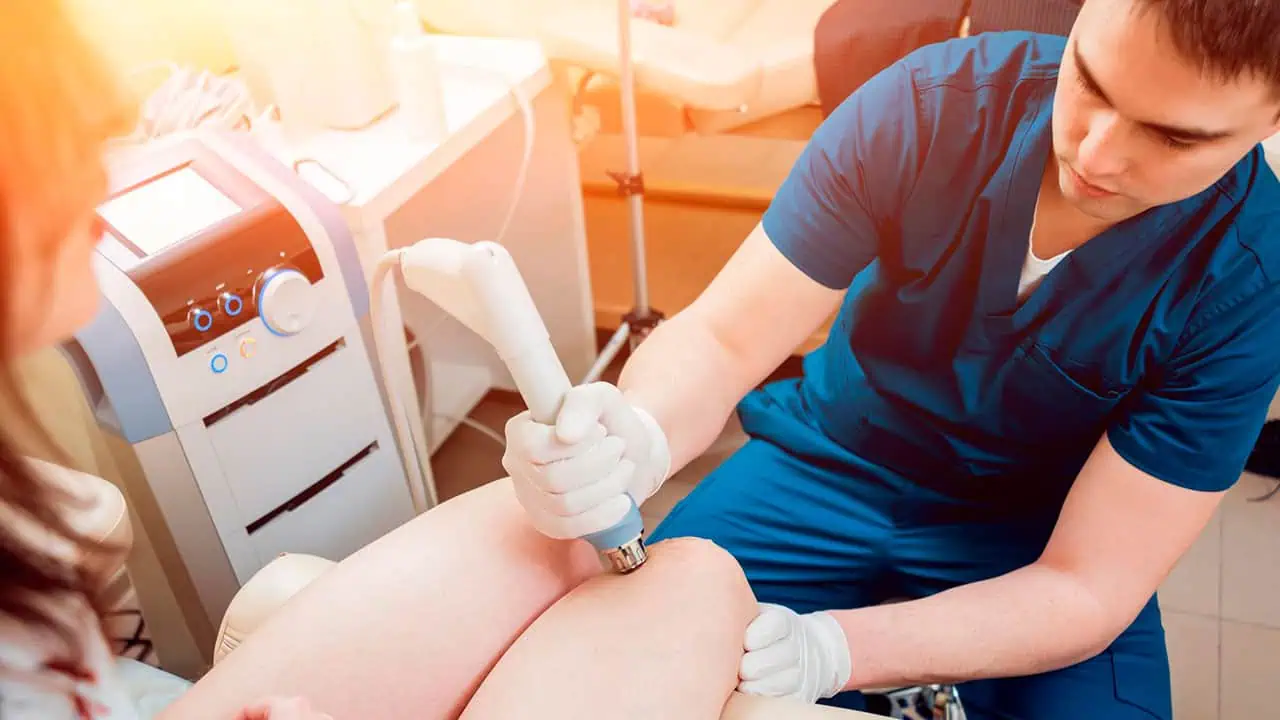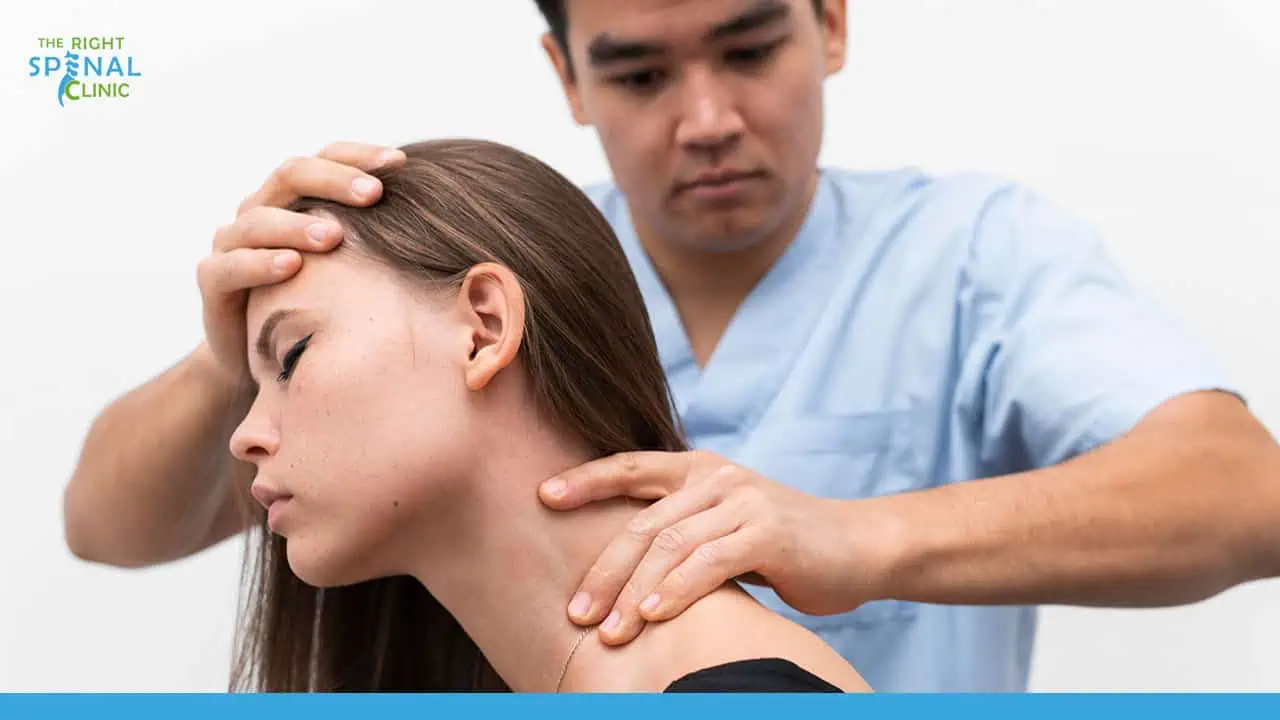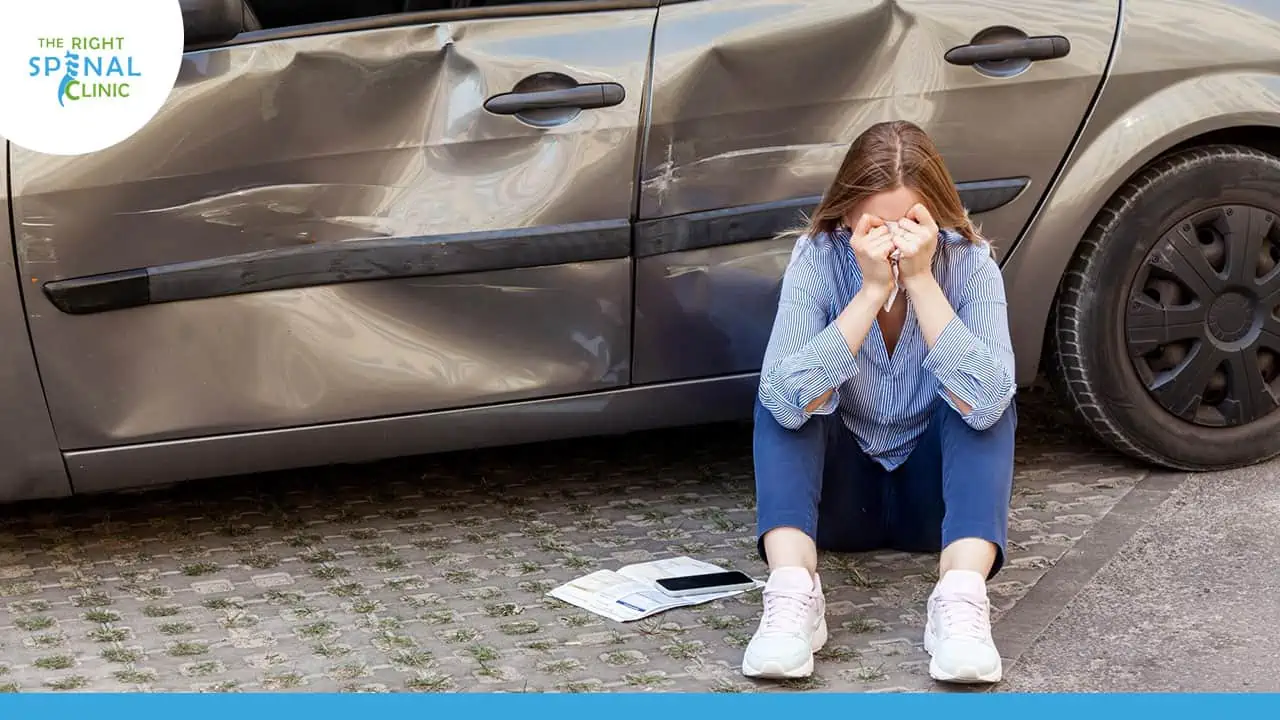
Car accidents are more than just crumpled metal and broken glass. They can leave invisible scars, like the devastating effects of nerve damage. This often-overlooked injury can cause a range of debilitating symptoms, from tingling and numbness to chronic pain and even paralysis. If you've been in a car accident, understanding the signs and seeking prompt medical attention at The Right Spinal Clinic in Tampa, your trusted nerve damage specialist, is crucial for minimizing long-term consequences.
Types of Car Accident Nerve Damage
Car accidents can cause a variety of common injuries, and nerve damage is unfortunately not uncommon. The severity of the nerve damage can vary greatly depending on the type of accident and the specific nerves affected. Here's a breakdown of some of the most common types of car accident nerve damage:
Neurapraxia
Neurapraxia is the mildest form of nerve damage, often caused by stretching or compression of the nerve. It's like temporarily "stunning" the nerve, resulting in temporary numbness, tingling, or weakness. Think of it like hitting your funny bone – that's a mild form of neurapraxia.
Neurapraxia typically resolves on its own within a few weeks or months with rest and supportive care. In some cases, physical therapy or other medical treatment may be helpful.
Axonotmesis
Axonotmesis is a more serious type of nerve damage that affects the axon, the long fiber that carries electrical signals within the nerve cell. In axonotmesis, the axon is damaged but the surrounding structures of the nerve are still intact. This can lead to more severe and longer-lasting symptoms than neurapraxia, such as muscle weakness, paralysis, and chronic pain.
Axonotmesis may require surgical intervention to repair the damaged axon, followed by extensive physical therapy to regain function. Recovery can take months or even years, and some degree of permanent damage may occur.
Neurotmesis
Neurotmesis is the most severe type of nerve damage, involving complete severing of the nerve fiber. This can cause complete loss of sensation and function in the affected area. Recovery from neurotmesis is often challenging and may require surgery to reconnect the severed nerve ends. Even with surgery, full recovery is not always possible, and some degree of permanent nerve damage is likely.
If you experience any symptoms of nerve damage after a car accident, it's important to seek medical attention immediately. Early diagnosis and treatment can improve the chances of recovery.
Symptoms of Nerve Damage
Nerve damage can be a scary and debilitating experience, with symptoms ranging from minor tingling to complete paralysis. It's important to be aware of the potential signs so you can seek medical attention promptly and get the treatment you need. Here are some of the most common symptoms of nerve damage:
Tingling sensation in your extremities
This is a classic symptom of nerve damage, often described as pins and needles or a "fizzing" feeling. It typically affects the hands and feet first, but can spread to other areas as well.
Limbs falling asleep when compressed
This happens when nerves are compressed by repetitive motions or awkward postures. For example, your hand might fall asleep after holding your phone for too long. If it happens frequently or doesn't resolve quickly, it could be a sign of nerve damage.
Abnormal sensitivity and pain
Some people with nerve damage experience hypersensitivity to touch, even light brushing can feel painful. Others experience sharp, shooting pains or a constant burning sensation. These can be particularly debilitating and interfere with daily activities.
Difficulty speaking
Nerve damage can affect the nerves that control the muscles involved in speech, leading to slurred speech, difficulty swallowing, or even vocal cord paralysis. This can be a serious symptom and requires immediate medical attention.
Muscle atrophy and loss of strength
When nerves are damaged, the muscles they control can weaken and waste away. This can start subtly, but may eventually make it difficult to perform everyday tasks like lifting objects or climbing stairs.
Lightheadedness or dizziness
Balance and coordination can be affected by nerve damage, particularly in the feet and legs. This can lead to dizziness, lightheadedness, and an increased risk of falls.
Problems holding or releasing urine and stool
Nerve damage can disrupt the signals between the nerves and the bladder or bowel, leading to incontinence or difficulty emptying. This can be a very distressing symptom and should be discussed with a doctor.
Paralysis
In severe cases, a pinched nerve can lead to complete paralysis, meaning the affected muscles can no longer move at all. This is a serious complication that requires specialized treatment and rehabilitation.

Common Car Accident Nerve Injuries
Car accidents can wreak havoc on your body, and unfortunately, nerves are often vulnerable to damage in the chaos. Let's explore some of the most common car accident nerve injuries:
1. Whiplash Injuries:
A sudden jolt from a rear-end collision can whip your head back and forth, stretching and straining the nerves in your neck. This can lead to:
- Neck pain and stiffness
- Headaches
- Tingling or numbness in the arms and hands
- Dizziness
- Muscle weakness
2. Pinched Nerves:
When bones, discs, or muscles are displaced in a crash, they can put pressure on nearby nerves, causing:
- Sharp pain radiating down the affected nerve
- Tingling or numbness in the area served by the nerve
- Muscle weakness
- Difficulty moving the affected limb
Neuropathy:
Trauma from a car accident can damage the peripheral nerves, which are responsible for sending signals between your brain and your limbs. This can cause:
- Numbness or tingling sensations
- Burning pain
- Muscle weakness
- Difficulty coordinating movements
Radiculopathy:
The spinal nerve roots, which branch out from the spinal cord, can be irritated or inflamed by a car accident. This can lead to:
- Sharp, radiating pain following the path of the affected nerve root
- Muscle weakness or paralysis in the affected area
- Tingling or numbness
It's important to remember that these are just some of the many possible nerve injuries that can occur after a car crash. If you experience any of these symptoms, it's crucial to seek medical attention immediately for proper diagnosis and treatment. Early intervention can make a significant difference in your recovery.
How Often Do Car Accidents Cause Nerve Damage?
Determining the exact percentage of car accidents causing nerve damage can be tricky, with research findings influenced by different study parameters. However, numerous studies indicate it's far from uncommon. Estimates suggest 10% to 20% of car accident victims experience some form of nerve injury.
Specific types of nerve damage exhibit higher prevalence. Whiplash, a frequent consequence of rear-end collisions, often involves nerve damage in the neck and shoulders. Additionally, the severity of nerve damage varies significantly. While some cases heal naturally with rest and support, others demand extensive medical intervention, including surgery and physical therapy.
Here's why nerve damage after car accidents can be so diverse:
- Impact force and direction: Blunt force trauma from sudden stops or collisions can directly damage nerves, while broken bones, internal injuries, and brain and spinal cord injuries can indirectly compress or sever them.
- Nerve type affected: Motor nerves control movement, while sensory nerves transmit sensation. Damage to each type manifests differently. For example, motor nerve damage might cause muscle weakness, while sensory nerve damage could lead to numbness or tingling.
- Autonomic nerves: These regulate involuntary functions like heart rate and digestion. While less common, car accidents can also injure them, leading to potentially life-threatening complications.
It's crucial to remember that even traumatic brain injuries, often overshadowed by visible injuries, can affect nerve pathways impacting sensation, movement, and cognitive function.
Therefore, if you've experienced a car accident, be mindful of any potential nerve damage symptoms. Early diagnosis and intervention are critical for maximizing recovery and minimizing long-term complications.
Seek Medical Care Immediately After a Car Accident
Regardless of the type or severity, any suspected nerve damage after a car accident warrants immediate medical attention. Early diagnosis and proper treatment can significantly improve your chances of recovery and prevent further complications.
Here are some signs that should prompt you to seek medical attention after a car accident:
- Numbness or burning sensations in any part of your body
- Sharp, radiating, or severe pain
- Muscle weakness or paralysis
- Difficulty moving or controlling your limbs
- Changes in sensation, such as burning or hypersensitivity
- Dizziness or balance problems
- Problems with bladder or bowel control
Discuss Your Injuries With Your Doctor at The Right Spinal Clinic in Tampa
Your doctor will perform a thorough evaluation, including a physical examination and potentially imaging tests, to diagnose the extent of your nerve damage. Based on the diagnosis, they will develop a personalized treatment plan.
Treatment options for nerve damage may include:
- Rest and pain management: Over-the-counter pain relievers and muscle relaxants can help manage discomfort.
- Physical therapy: Exercises can help improve muscle strength, flexibility, and coordination.
- Braces or splints: These can help stabilize the affected area and prevent further injury.
- Medications: In some cases, medications such as corticosteroids or nerve pain medications may be prescribed.
- Surgery: In severe cases, surgery may be necessary to repair damage to one or more nerves.
If you're in the Tampa area and experiencing nerve damage after a car accident, consider seeking care at The Right Spinal Clinic. We specialize in treating spinal cord and nerve injuries, offering comprehensive diagnostic and treatment services. Our team of experienced physicians and therapists can help you develop a personalized recovery plan and get you back on track.
Call The Right Spinal Clinic at (813) 392 2164. Remember, prioritizing your health after a car accident is crucial. Seeking prompt medical attention can make a significant difference in your recovery and long-term well-being.
Recent Posts

